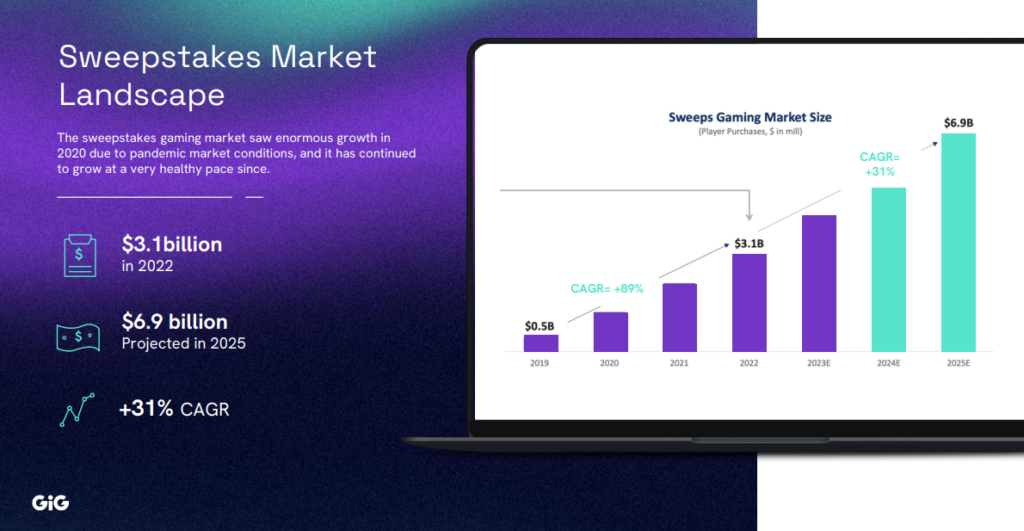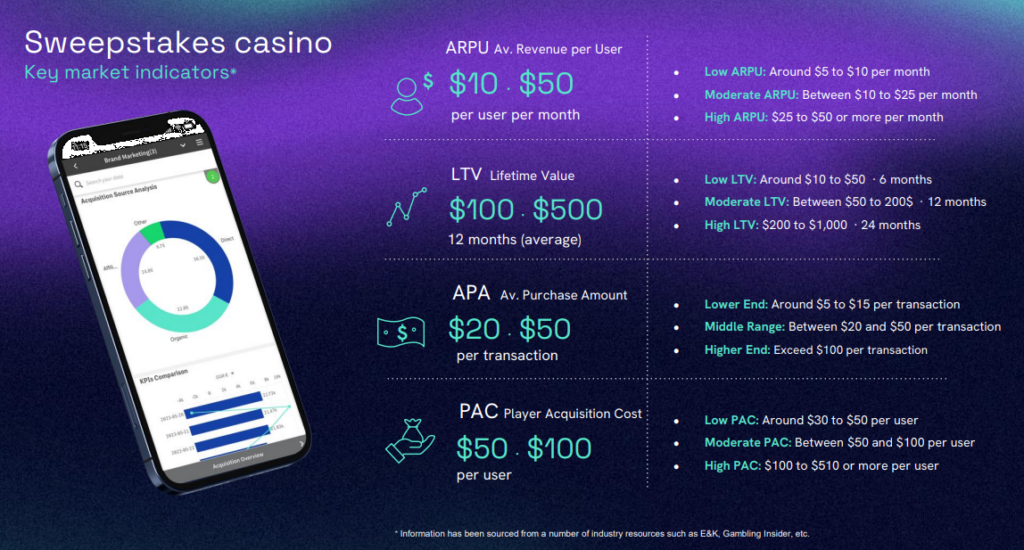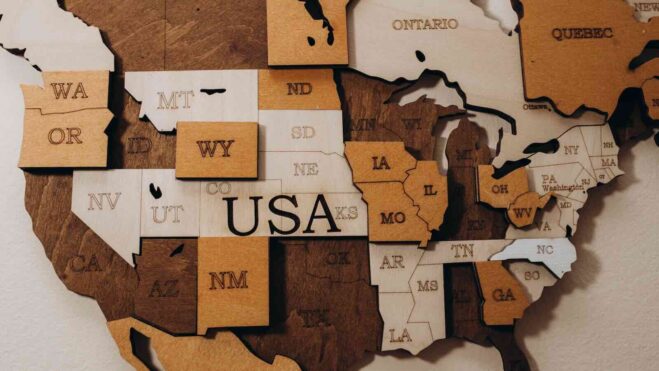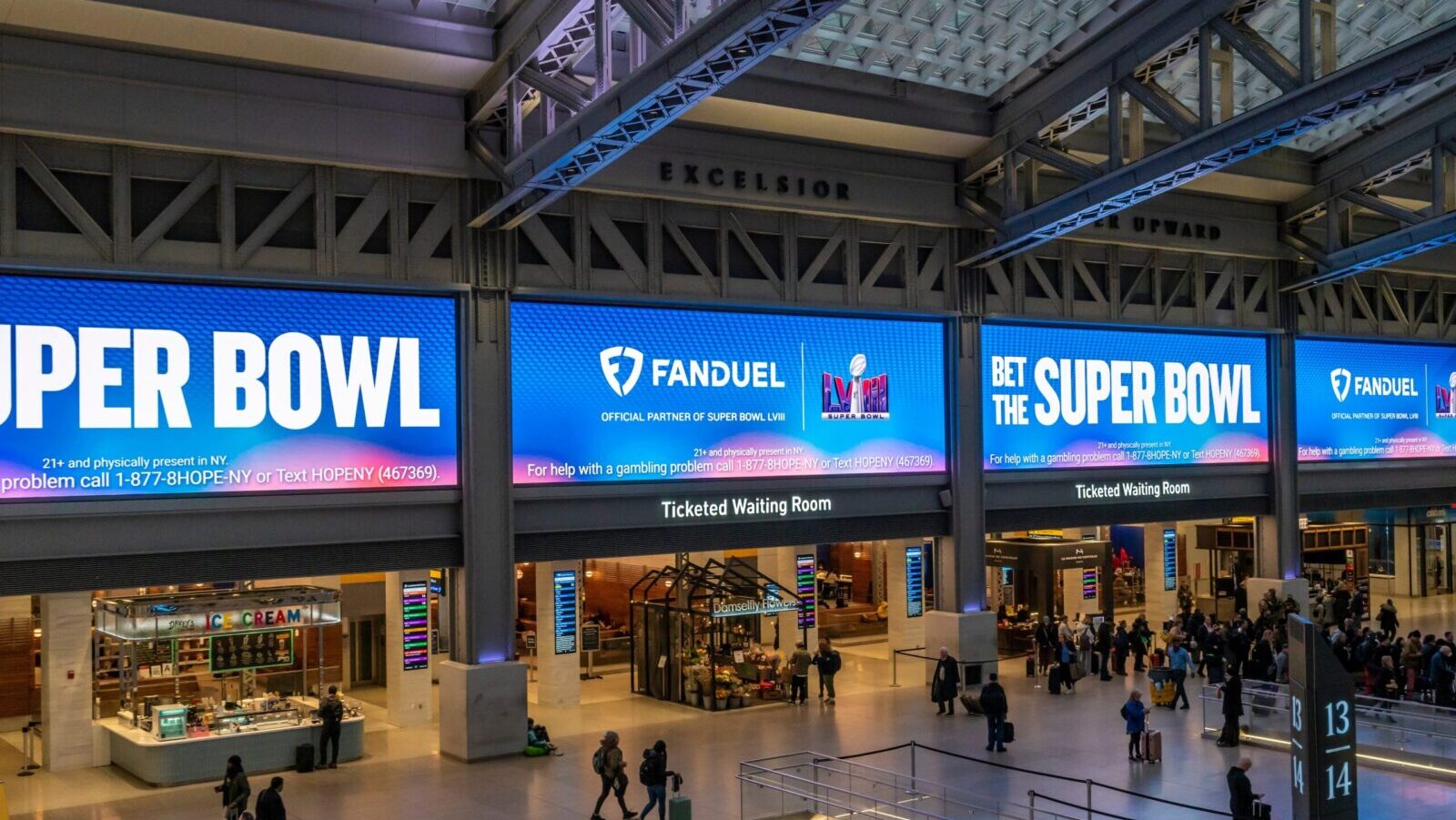GiG Pivoting, Ready To Capture Share Of U.S. Sweepstakes Gaming Market
Gaming Innovation Group is optimistic about the future of sweepstakes casinos
2 min

The sweepstakes casino market has shown significant growth over the past couple of years, driven by shifts in consumer behavior and favorable market conditions. According to a September 2024 report by Gaming Innovation Group (GiG), the company fully intends to take advantage of this growth.
GiG’s September 2024 investor presentation highlighted its significant efforts to capture value in the sweepstakes market. The company has introduced its proprietary platform, SweepX, which aims to provide operators with a comprehensive solution for offering sweepstakes games.

According to GiG, SweepX has been designed to comply with regulatory requirements across multiple jurisdictions. It provides operators with a dual-wallet system, prize management capabilities, and AI-driven gamification features. These combine to motivate players to engage in competitions and interact with one another.
Furthermore, GiG’s partnerships, such as its recent collaboration with Primero Games, one of the largest suppliers of sweepstakes machines in the U.S., are expected to drive growth in this sector.
GiG’s report noted that the total addressable market for sweepstakes platforms is growing at a compound annual growth rate of 31%, with revenues in this sector expected to increase from $3.1 billion in 2022 to a projected $6.9 billion by 2025.
The significant increase in revenue reflects the expanding user base and higher average revenue per user (ARPU). In the sweepstakes market, ARPU tends to vary, but projections suggest that it typically ranges between $10 to $50 per user per month, depending on engagement levels and transaction amounts.
Sweepstakes casinos in a regulatory haze
While the sweepstakes casino industry presents significant opportunities, it also faces challenges, especially in terms of regulatory oversight. The nature of sweepstakes gaming puts it in what some consider a gray area between traditional gambling and free-to-play games.
States like Washington and California have already blocked sweepstakes casinos. Other states, however, have shown that they’re either on board with sweeps or uninterested in addressing the segment.
Jonathan Michaels of Michaels Strategies speaks optimistically about the sweepstakes casino space. In a conversation with Casino Reports, he highlighted that the operators have perhaps been mischaracterized, and that they simply leverage what’s legal in social casino and add a new metric on top of it.
Part of the mischaracterization may stem from a lack of understanding about how the sweepstakes casinos work. Recently, several gaming operators, including High 5 Entertainment, Fliff, and others, formed the Social and Promotional Gaming Association to address that deficiency.
Michaels added that the group would benefit from working with policymakers, legislators, and others to develop a plan that could help the segment succeed. There’s a strong likelihood that the sweepstakes gaming market can perform well, but only if it can show that it’s properly addressing concerns, like money laundering, that regulated casino and sports betting operators must already address.
Room to grow
The social gaming and sweepstakes models allow players to participate in forms of gambling without directly wagering real money. Sweepstakes platforms allow users to earn virtual currencies, or “sweeps coins,” which can later be redeemed for cash prizes. Some players have turned this into a full-time affair.

This model appeals to a broad demographic, including those who are wary of traditional gambling but still enjoy the thrill of gaming. Additionally, sweepstakes casinos often incorporate social elements such as leaderboards, competitions, and virtual rewards, making the experience more community-driven.
Another important factor contributing to the success of sweepstakes casinos is the relatively low cost of player acquisition. GIG’s report outlined that player acquisition costs in this market can range from $50 to $100 per user, which is lower than in most traditional gaming sectors.





